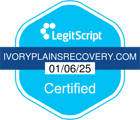Stress is an inevitable part of life, but how we manage it impacts our mental, emotional, and physical well-being. Adopting diverse and effective stress management techniques helps you improve emotional regulation, enhance resilience, and create a healthier, more balanced life in recovery. Below are 10 proven strategies you can try to handle immediate and long-term stressors.
1. Practice Positive Reappraisal
This approach involves shifting how we view stressful situations. Instead of seeing challenges as threats, we can reframe them as opportunities for growth. This cognitive shift helps reduce emotional distress. In 2024, Maine Public shared findings from a study that emphasized how this technique decreases anxiety and boosts mood by altering how we interpret stress.
- Example: If faced with a tight deadline, reframe it as an opportunity to improve your time management skills.
2. Cultivate Self-Compassion
It’s important to treat yourself with kindness during stressful times, rather than harshly criticizing your thoughts, feelings, and actions. Recognizing that everyone faces challenges creates an environment of acceptance and reduces emotional strain.
- Key benefit: Self-compassion helps lessen anxiety and depression. Calm offers five ways to practice it.
3. Find Moments of Gratitude
Regularly reflecting on things you’re grateful for can shift your focus from stressors to the positive aspects of life. A gratitude practice provides many benefits, including lowering stress hormones and enhancing overall happiness.
- Tip: Keep a gratitude journal, writing down three things you’re thankful for each day.
4. Use Aromatherapy
The Cleveland Clinic reports that essential oils help reduce cortisol levels and induce a calming effect—sometimes in as little as 15 minutes. “Make sure to use products labeled as organic or therapeutic grade. Check for the Latin name of the oil source on the label, too,” the organization recommends.
- Effective oils: Bergamot, chamomile, geranium, lavender, jasmine, and sweet orange are just a few scents known to promote relaxation.
5. Try Progressive Muscle Relaxation (PMR)
PMR is a technique that involves tensing and relaxing different muscle groups throughout your body. This practice helps to identify and release areas of physical tension caused by stress.
- How it works: Start from your toes and work your way up to your head, tensing each muscle group for a few seconds before releasing. Here’s a guided sequence to follow from Johns Hopkins Medicine.
6. Focus on Breath
When stressed, our breathing becomes shallow and rapid. By practicing deep, slow breathing, we can activate the body’s relaxation response. Studies show that practicing different breathwork techniques helps reduce stress and promotes a calmer state.
- Breathing technique: Try the 4-7-8 method (inhale for 4 seconds, hold for 7 seconds, exhale for 8 seconds).
7. Engage in Creative Activities
Painting, journaling, singing, dancing, doodling, or playing music are just a few therapeutic outlets for managing stress. These activities promote mindfulness and provide a break from the pressures of daily life.
- Get started: Sage Neuroscience Center explains how to work with an art therapist, as well as all the many ways you can be creative for just a few minutes.
8. Schedule Your Time Mindfully
Being intentional about how you structure your day has a big impact on stress. From habit stacking to improve wellness to planning realistic timelines to taking regular time-outs, you’ll establish healthy boundaries to prevent burnout, lower your stress level, and improve your overall well-being. You’ll also have an easier time recognizing potential relapse triggers.
- Tip: Incorporate short breaks throughout your day for relaxation or a brief walk outside.
9. Move Often
Physical movement—whether it’s yoga, walking, or a full workout—is one of the most effective ways to combat stress. It releases endorphins, the body’s natural stress relievers, which improves your overall mood.
- Added benefits: Research indicates moderate-intensity exercise helps reduce anxiety and depression.
10. Limit Screen Time
Endless news feeds, social media scrolling, and other digital distractions contribute to increased stress and anxiety. However, the website Health found that limiting screen time is a valuable stress management tool to improve emotional well-being.
- Key advice: Set time limits for social media or news apps to reduce exposure to stressful content. To learn different ways to do this, follow these tips from Health.
Learn More About Healthful Living at Ivory Plains
Stress is a part of life, but how you manage it dramatically affects your health and happiness. Remember, the key is finding what works best for you and making it a part of your daily routine. At our addiction rehabilitation program in Adair, Iowa, we have board-certified professionals who’ll work with you to help identify primary stressors and share valuable tools that allow you to take more intentional control of what might compromise your long-term recovery. Talk to a member of our admissions team to learn more about our treatment philosophy.








